Note: Names noted with * have been changed to protect privacy of those sharing their stories.
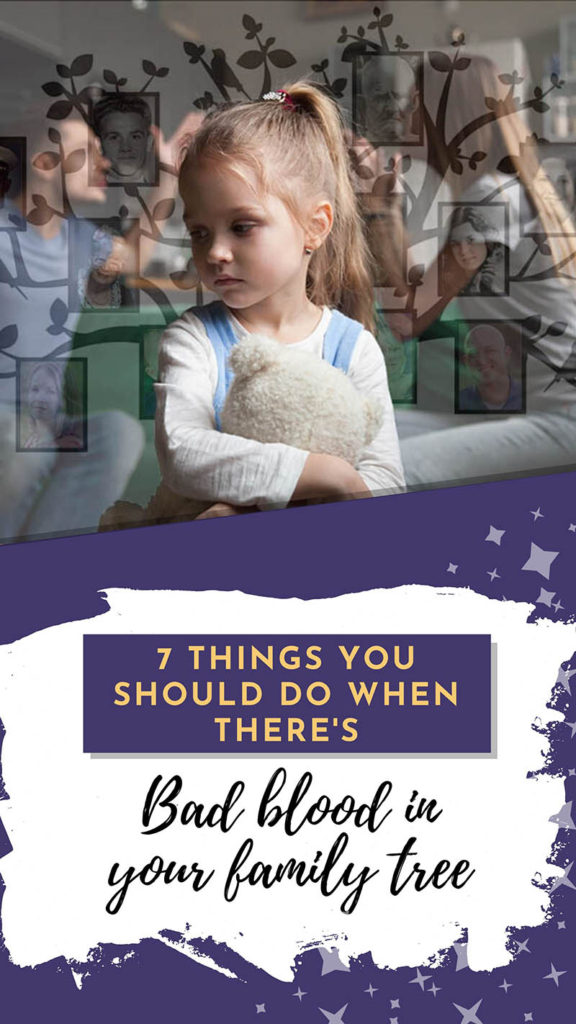
Addie* got a message from FamilySearch: “Did you know your grandfather married in the same city that you did?”
It was meant to be a fun message. Something to help Addie feel closer to her grandfather.
But it had the opposite affect.
Addie knew her grandfather. Or thought she did. But after he died a few years ago, everything came out. The truth fractured the family.
Siblings refusing to talk to each other. Parents ostracizing their children. Others acting like nothing ever happened. And it all stems back to one person…Addie’s grandfather.
“I’ve seen all the affects that abuse has caused,” Addie said, “and it’s very likely that when someone abuses their family it’s because they were abused. So I wonder how far back does the abuse go in my grandfather’s family. I have all of these suspicious thoughts, things I make up when I hear stories about that part of the family.”
Addie is not alone in this.
Family drama, pain, embarrassment, bad blood are one the main reasons people say they’re not interested in their family history. They’re also among the big reasons people won’t talk to you about their family’s past.
So what to do if you’re facing a situation like this?
Here are 7 ideas to get you tree building despite the pain, anger, drama, embarrassment, feuds, or other negative things in your family tree.
1. Skip the painful parts of your tree
If someone in your tree triggers strong negative feelings in you, odds are you’re not going to want to learn about them, discover their life, build their family tree.
“The hard part for me is being open to hearing my family’s stories and attempting to grow closer to my ancestors,” Addie explained. “I’m always wondering, ‘Did this person do something bad? Did this person start all the bad stuff in my family?'”
So in this case — where the emotions are too raw, the pain still too painful, or the anger too strong — just skip it.
“If I were to go searching for family history stories, I would choose other parts of my family tree,” Addie said. “I would not go down my grandfather’s family history.”
You could skip over that specific person and move on to his/her parents (if you can or want to). Or, like Addie, just don’t research that part of the family tree.
You know what is best for you. So do that. Just don’t let the pain stop you completely from enjoying family history.
2. Seek healing through family history work
Tina* grew up in an abusive home. Most of it came from her mother. As a teenager, Tina moved out.
From that time forward, Tina had little-to-no contact with her parents. She married and settled in a different country. She didn’t attend either of her parents’ funerals. Her own children never met her parents. Tina didn’t share much about her family.
But that would change when Tina’s adult daughter, Sarah*, started a family tree.
“I realized my grandma was baptized a member of The Church of Jesus Christ of Latter-day Saints at age 8 but that her temple work hadn’t been done,” Sarah explained. “And my grandpa’s work hadn’t been done at all.”
So Sarah started learning about her grandparents’ lives. She tried to include Tina, even inviting Tina to participate in the temple ordinances for Tina’s parents.
“My mom surprised me in the temple, she was very light-hearted,” Sarah recalled. And then there was another surprise: “I looked down at the ordinance card and realized we were doing my grandma’s temple work on her 100th birthday.”
It was an emotional experience for both women.

Sarah was proud of her mother, Tina, for doing her own mother’s temple work, even though Tina did not have an attachment to her. Sarah believes the family history work has been healing for Tina and brought her some peace.
“It’s been nice for my mom to have some positive eternal experiences with her parents, where the mortal experiences were so negative,” Sarah said. “And now my mom has those positive experiences to hold on to.”
If you can move past the pain, discovering the lives of your ancestors can bring healing and hope.
3. Gain understanding by discovering their history
“I’m a generation removed from the trauma and emotional abuse,” Sarah explains of the struggles that went on in her mother’s childhood home. “I have the advantage of never having a personally known my mom’s parents, so the pain doesn’t prevent me from learning about them.”
This is a important point: The more removed from pain or embarrassment, the less likely we’ll be bothered by it or skittish to research it.
An example…
I’ve heard similar comments from several African Americans: their older family members won’t talk about the family’s history.
If you think about African American history in the US — especially from the mid-20th-century and backward in time — there is a lot of painful things that African American families have been through. Segregation, lynchings, Jim Crow Laws, slavery, and more.
But, I’ve noticed that the generations who didn’t live through those things are open to discovering their family’s past, pain and all. They are far enough removed from such trauma, so the emotions and triggers are lessened or non-existent.
And the beautiful thing about this is that by discovering their family’s past, they are reclaiming a stolen history. And that is POWERFUL!
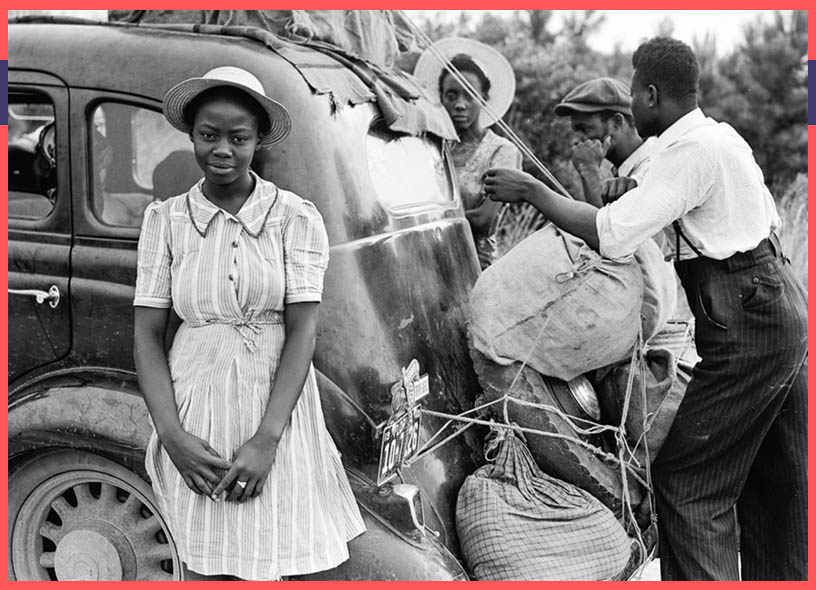
The farther away from an event that we get, the less embarrassment, pain, fear, or other negative emotion can impact us. And we can gain a better understanding of and compassion for who our people were and why they did the things they did.
5. Remember that others still feel the pain
Researching your family tree can lead you to ask other family members questions that could bring up their own pain, anger, or embarrassment. Emotions they may not be willing to talk about, share, or revisit.
In those cases, be kind. Tread lightly. Respect their emotions and don’t push for details they’re not willing to or comfortable sharing.
I suggest attempting to stick to the most important facts needed for a person or family, such as:
- Full name
- Birth date and place
- Marriage date and place
- Death date and place
- Full name of spouse
- Full name of children
When dealing with a tricky family situation, asking someone for just names, dates, and places may be an easier task than asking for stories and details.

Sticking to the facts could also help you.
“It’s overwhelming for me to know all the details about every situation in my past family,” explains Ramona Barela, a member of my 5-Minute Family History Facebook group. “Sometimes I’ve needed to know about a child not lining up with a marriage date. Or the details of someone who died very young. So I found out enough details to understand if the information was correct. But I didn’t need to know all the details.”
Just the facts, ma’am. This is great advice for working with anyone — yourself or others — feeling skittish about the details of family history.
Of course, though, you may encounter some people who don’t want to share any information. And that’s OK, too.
My advice: respect their wishes and move on as best you can in other historical sources or in other parts of your tree. Personally, I value maintaining (at least some level of) peace within a living family over building a family tree.
6. Choose love, compassion, and respect
Even if you and/or other family members are far past the pain, offering compassion to people in your family tree can be empowering.
This is great advice from Cleta McDow in the 5-Minute Family History group: “When you start searching the past, you have to remember they were humans! They had good, they had bad! But, as still true today, it’s not our job to judge them.”
Well said!
As we move backward in time, it’s sometimes tempting to romanticize ancestors and turn them into paragon’s of perfection. Or, conversely, see them as nothing but names on paper. But trying to put ourselves in their shoes and attempting to imagine what their life was like can create great understanding and compassion — and even feelings of deeper personal relationships with your ancestors.

“I learned my 3rd great-grandfather committed suicide by hanging himself when he was in his 40s, close to my age now,” shared group member Ann Hoven. “So I took a couple of days break after saying a prayer for him.”
A beautiful response for remembering a troubled soul in her family tree.
7. Accept the truth
Truth is truth. And sometimes it stings.
As hard as it may be to face some things, it doesn’t change the fact those negative or embarrassing things may be true.
But, as 5-Minute Family History member Maureen Fertig shared, “A lot of things that happen are just a sign of the times.” And we have “to understand the environment and mindset at that time,” added Carol Rice, another group member.
Now that is truth!
We don’t live in the same time, place, or culture as our ancestors. We don’t have the same perspective. We don’t have the same social and cultural norms. Some painful or embarrassing truths were the norm for our ancestors. (Like first cousins marrying, to use a fairly light example among many heavy ones I could mention.)
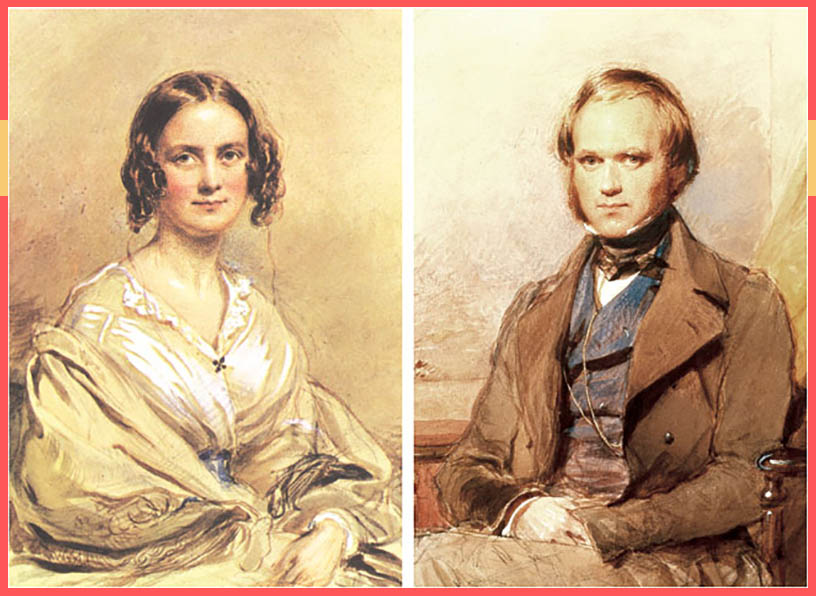
If you find a painful or embarrassing truth, consider doing some historical/contextual research to see if it were part of a larger social norm. Such research could offer a new, interesting perspective on the situation. (First cousin marriage was fairly common in the early 1800s. In fact, wealthy English parents encouraged first cousins to marry to keep wealth within the family.)
And, sometimes the embarrassing things are only embarrassing because of the times YOU live in.
For example: Australia was settled by English convicts shipped by the crown to the penal colonies Down Under. A lot of Australians today are descendant from those settling convicts.
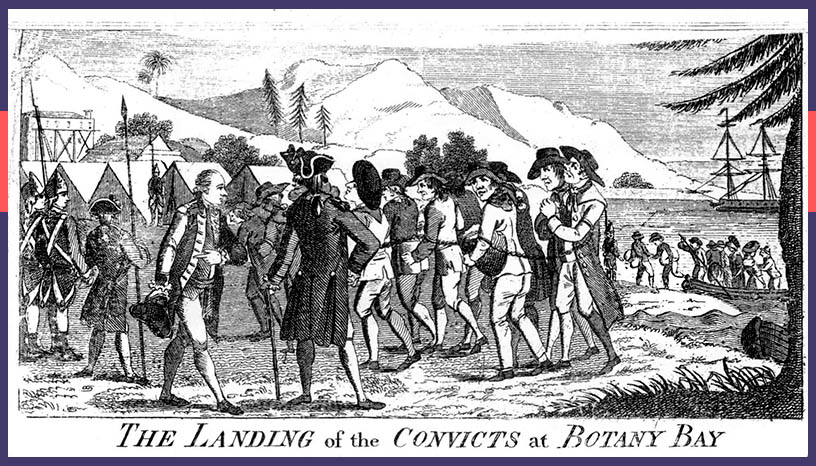
50+ years ago, having a convict in your tree was a source of embarrassment, a reason to fudge your genealogy, deny your true identity.
But the culture’s changed.
Today, having a settler convicts in your family tree is a sort of badge of honor.
Truth is truth. Sometimes it’s our own perspective that causes the pain.
Read Next
Images
- Images 1, 3, & 4. Licensed from Adobe Stock images
- Image 2. Florida migrant family. Photo by Jack Delano, July 1940, 12 Story Library, found online at Jack Delano, accessed 24 April 2020.
- Image 5. Darwin portraits. Emma Darwin, about 1840, public domain, found online at https://en.wikipedia.org/wiki/Emma_Darwin#/media/File:George_Richmond_-_Emma_Darwin_-_1840.jpg. Charles Darwin, late 1830s, public domain, found online at https://en.wikipedia.org/wiki/Charles_Darwin#/media/File:Charles_Darwin_by_G._Richmond.png, accessed 24 April 2020.
- Image 6. Convict landing at Botnay Bay. “Landing of Convicts at Botany Bay” from Captain Watkin Tench’s A NARRATIVE OF THE EXPEDITION TO BOTANY BAY, first published in 1789, public domain, found online at https://en.wikipedia.org/wiki/Convicts_in_Australia#/media/File:Convicts_at_Botany_Bay.jpg, accessed 24 April 2020.
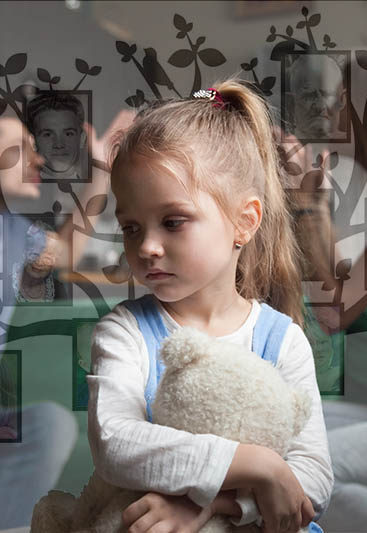
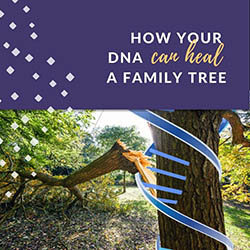

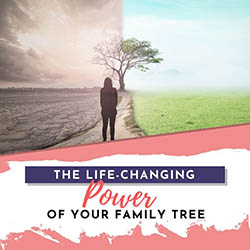

An amazing and thoughtful article. Yes, I too have learned of members in my family tree whose actions undoubtedly caused others pain and sorrow. Your thoughts on gaining understanding are so meaningful. It’s easy to judge from the comfort of my home and the perspective of my current situation, but we know so little about our family members and their circumstances.
I have found peace in your encouragement to offer love, compassion, and respect to everyone in the family. And frankly, each of us acts in ways that deserve forgiveness, so it’s only fair to offer it.
Thank you.
Thank you, David. I appreciate these thoughts. As I’ve spoken with people, I’ve realized how common pain, sorrow, embarrassment can be. And sometimes we act like family is all golden and happiness. But sometimes, family offers us the chance to forgive.